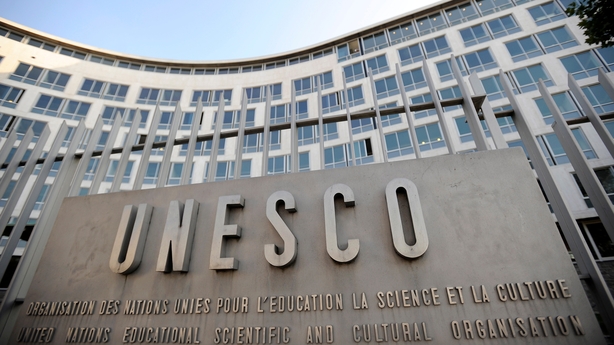A UN report has advised caution when it comes to the use of laptops and other digital technology in the classroom, warning that the moderate benefits associated with such use could be overstated.
In a report that is likely to ring alarm bells among the parents of children attending schools that rely heavily on technology such as iPads for classroom learning, UNESCO has said the value of digital technology for teaching and learning still needs to be proven.
UNESCO - the United Nations Scientific Cultural and Educational Organisation - has cast doubt on evidence from reviews over the past two decades that found "a small to medium positive effect" on learning outcomes, saying that technology companies can have a disproportionate influence on research, and that evaluations to date have been limited in scope and have often obscured the role other factors played in influencing outcomes.
"There is little robust evidence on digital technology's added value in education," the report says.
Manos Antoninis, who directed the UNESCO report, said 20 years after laptops began to be rolled out in schools, it was clear that such policies only worked if they were combined with a solid pedagogical framework.
But only a "few countries have had the patience and energy to move into that direction," he said.
"It's not enough to just distribute devices," he said.
UNESCO has cited a 2018 OECD finding which found that technology use beyond a moderate threshold was associated with diminishing academic gains.
"While students need to be taught about digital technology ... this does not necessarily mean that students need to be taught through digital technology," the UNESCO review states.
It has warned that the role of commercial and private interests in education continues to grow, "with all the ambiguities that entails".
The report has recommended that the best interests of pupils should systematically take precedence over any other consideration – particularly commercial considerations, and that technology should be seen as a means, never an end.
The report – Technology in Education: a tool on whose terms? - states that the growing influence of the education technology industry on education policy at the national and international levels is a cause for concern.
"A better understanding and exposure of the interests underlying the use of digital technology in education and learning are needed so as to ensure that the common good is the priority of governments and educators," it says.
The report says that with "tremendous incentives to show effectiveness" technology companies can have a disproportionate influence, by for instance presenting only evidence that supported their claims.
It cited one reading and mathematics instruction tool that was developed in the US by the company Pearson.

While independent evaluations "found negative or null effects on learning ... Pearson – the company that developed the product – continues to publicise self-funded findings and conclusions of significant, positive effects".
It also noted that "key commercial actors act as both salespeople and advisors at the same time".
The report states that intensive technology use can negatively impact student performance and increase disruption.
It says this is often ignored by research and evaluations.
It says the use of smartphones and computers disrupts both classroom and home learning activity.
It refers to a meta-analysis of research which found this mostly linked to increased distraction and time spent on non-academic activities during learning hours.
"Incoming notifications or the mere proximity of a mobile device can be a distraction, resulting in students losing their attention from the task at hand".
It cites one study which found that it can take students up to 20 minutes to refocus on what they were learning after engaging in a non-academic activity.
Negative effects are also reported in students from the use of personal computers for non-academic activities during class, such as internet browsing.
Raising environmental concerns, the UNESCO report says that not all change constitutes progress and while technology is often presented as a sound, potentially labour-saving investment that may even be able to replace teachers, its full economic and environmental costs are usually underestimated and unsustainable.
"The bandwidth and capacity of many to use technology in education are limited. And it is time to reckon with education technology's cost in terms of environmental sustainability and question whether such technology truly strengthens education systems’ resilience".
The report states that while technology has great promise for improving existing teaching and learning processes, any evidence of success is limited.
It concludes that positive impact is often dependent on strong pedagogical alignment and teacher input.
It says governments need to base their decisions on reliable evidence that looks at the long-term effects of interventions.







